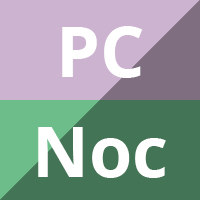
Droperidol for treatment of nausea and vomiting in palliative care patients
Abstract Background This is an updated version of the original Cochrane review published in Issue 10, 2010, on droperidol for the treatment of nausea and vomiting in palliative care patients. Nausea and vomiting are common symptoms in patients with terminal illness and can be very unpleasant and distressing. There are several different types of antiemetic […]

Nutritional interventions for preventing and treating pressure ulcers
Abstract Background Pressure ulcers affect approximately 10% of people in hospitals and older people are at highest risk. A correlation between inadequate nutritional intake and the development of pressure ulcers has been suggested by several studies, but the results have been inconsistent. Objectives To evaluate the effects of enteral and parenteral nutrition on the prevention […]

Botulinum toxin for upper oesophageal sphincter dysfunction in neurological swallowing disorders
Abstract Background Adequate upper oesophageal sphincter (UOS) opening is critical to safe and efficient swallowing due to the close proximity of the UOS to the airway entrance. Many people with neurological conditions, progressive and non-progressive, present with UOS dysfunction. The consequences for the person include difficulty swallowing food with subsequent choking and aspiration (passage of […]

Medically assisted hydration for palliative care patients
Abstract Background Many palliative care patients have reduced oral intake during their illness. The management of this can include the provision of medically assisted hydration with the aim of prolonging the life of a patient, improving their quality of life, or both. This is an updated version of the original Cochrane review published in Issue […]

Medically assisted nutrition for palliative care in adult patients
Abstract Background Many palliative care patients have a reduced oral intake during their illness. The management of this can include the provision of medically assisted nutrition with the aim of prolonging the length of life of a patient, improving their quality of life, or both. This is an updated version of the original Cochrane review […]

Computed tomography (CT) angiography for confirmation of the clinical diagnosis of brain death
Abstract Background The diagnosis of death using neurological criteria (brain death) has profound social, legal and ethical implications. The diagnosis can be made using standard clinical tests examining for brain function, but in some patient populations and in some countries additional tests may be required. Computed tomography (CT) angiography, which is currently in wide clinical […]

Colloids versus crystalloids for fluid resuscitation in critically ill patients
Abstract Background Colloid solutions are widely used in fluid resuscitation of critically ill patients. There are several choices of colloid, and there is ongoing debate about the relative effectiveness of colloids compared to crystalloid fluids. Objectives To assess the effects of colloids compared to crystalloids for fluid resuscitation in critically ill patients. Search methods We […]
Interventions for treating persistent and intractable hiccups in adults
Abstract Background Persistent and intractable hiccups (typically defined as lasting for more than 48 hours and one month respectively) can be of serious detriment to a patient’s quality of life, although they are relatively uncommon. A wide range of pharmacological and non-pharmacological interventions have been used for the treatment of persistent and intractable hiccups. However, […]

Colloid solutions for fluid resuscitation
Abstract Background Colloids are widely used in the replacement of fluid volume. However, doubts remain as to which colloid is best. Different colloids vary in their molecular weight and therefore in the length of time they remain in the circulatory system. Because of this, and their other characteristics, they may differ in their safety and […]

Spiritual and religious interventions for well-being of adults in the terminal phase of disease
Abstract Background As terminal disease progresses, health deteriorates and the end of life approaches, people may ask “Why this illness? Why me? Why now?” Such questions may invoke, rekindle or intensify spiritual or religious concerns. Although the processes by which these associations occur are poorly understood, there is some research evidence for associations that are […]

